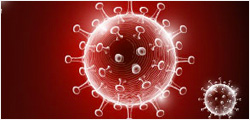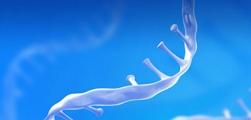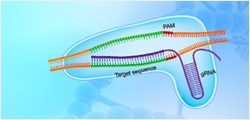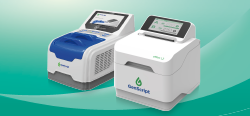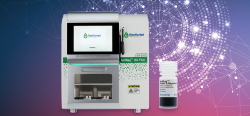| Specificity |
The product reacts with VP1, VP2, VP3 proteins of AAV1, AAV2, AAV5, AAV6, AAV8, AAV9, AAVDJ, AAVrh.1.
AAV3, AAV4, AAV7 and AAV10 are not tested. |
| Host Species |
Rabbit |
| Immunogen |
AAVrh.1 Virus-Like Particles (VLPs) |
| Conjugate |
Unconjugated |
|
Working concentrations for specific applications should be determined by the investigators. The appropriate concentrations may be affected by secondary antibody affinity, antigen concentration, the sensitivity of the method of detection, temperature, the length of the incubations, and other factors. The suitability of this antibody for applications other than those listed below has not been determined. The following concentration ranges are recommended starting points for this product. |
| Application |
Recommended Usage |
| ELISA |
0.05-0.2 μg/ml |
| Dot Blot |
0.5-2 μg/ml |
| Western Blot |
0.5-2 μg/ml |
|
| Form |
Lyophilized |
| Storage Buffer |
Lyophilized with PBS, pH 7.2, containing 0.02% sodium azide. |
| Reconstitution |
Reconstitute the lyophilized powder with deionized water (or equivalent) to a final
concentration of 0.5 mg/ml. |
| Storage Instructions |
The lyophilized product remains stable up to 1 year at -20°C from date of receipt. The reconstituted antibody can be stored for 2-3 weeks at 2-8°C. For long term storage, aliquot and store at -20°C or below. Avoid repeated freezing and thawing cycles. |
| Purification |
Purified by Protein A affinity chromatography |
| Isotype |
Rabbit IgG |
| Clonality |
Monoclonal |
| Clone ID |
5G4 |
| Note |
GenScript can customize this product per customer's request including product size, buffer components, etc. |

ELISA binding of MonoRab? AAVX VP1/VP2/VP3 Antibody (5G4), mAb, Rabbit (GenScript, A02206) with AAV type 1, 2, 5, 6, 8, 9, DJ and rh.1.
Coating antigen: AAV type 1, 2, 5, 6, 8, 9, DJ and rh.1, 1 μg/ml.
MonoRab? AAVX VP1/VP2/VP3 Antibody (5G4), mAb, Rabbit (GenScript, A02206) dilution start from 1,000 ng/ml.

ELISA analysis of AAV type 1, 2, 5, 6, 8, 9, DJ and rh.1 using MonoRab? AAVX VP1/VP2/VP3 Antibody (5G4), mAb, Rabbit (GenScript, A02206).
Coating antigen: AAV type 1, 2, 5, 6, 8, 9, DJ and rh.1, 1 μg/ml.

Comparison of MonoRab? AAVX VP1/VP2/VP3 Antibody (5G4), mAb, Rabbit (Up: GenScript, A02206, 0.2 μg/ml) with Anti-AAV VP1/VP2/VP3 Mouse Monoclonal Antibody (Down: Competitor B, 0.2 μg/ml) by Dot blot.
The assay was performed with AAV rh.1.

Western blot analysis of VP1, VP2, VP3 proteins of AAV type 1, 2, 5, 6, 8, 9, DJ and rh.1 using MonoRab? AAVX VP1/VP2/VP3 Antibody (5G4), mAb, Rabbit (GenScript, A02206, 0.1 μg/ml).
The signal was developed with Peroxidase Conjugated Goat Anti-Rabbit IgG.
Predicted Size for VP1, VP2 and VP3: 87, 72 and 62 kDa
Observed Size for VP1, VP2 and VP3: 87, 72 and 62 kDa
| Target Background |
Adeno-associated virus (AAV) is a single-stranded DNA virus that commonly infects humans without pathology. Therefore, AAV can be engineered to deliver DNA to target cells as a vector for gene therapy. There are several serotypes including AAV type 1, 2, 5, 6, 8, 9, DJ and rh.1. Among them, AAV2 is the best characterized and most commonly used. Cap gene of AAV gives rise to three capsid proteins, VP1, VP2 and VP3, with molecular weight of 87, 72 and 62 kDa, respectively. These capsid proteins assemble into a near-spherical protein shell of 60 subunits for AAV. |
| Synonyms |
Adeno-associated virus; AAV |
For laboratory research use only. Direct human use, including taking orally and injection and clinical use are forbidden.




